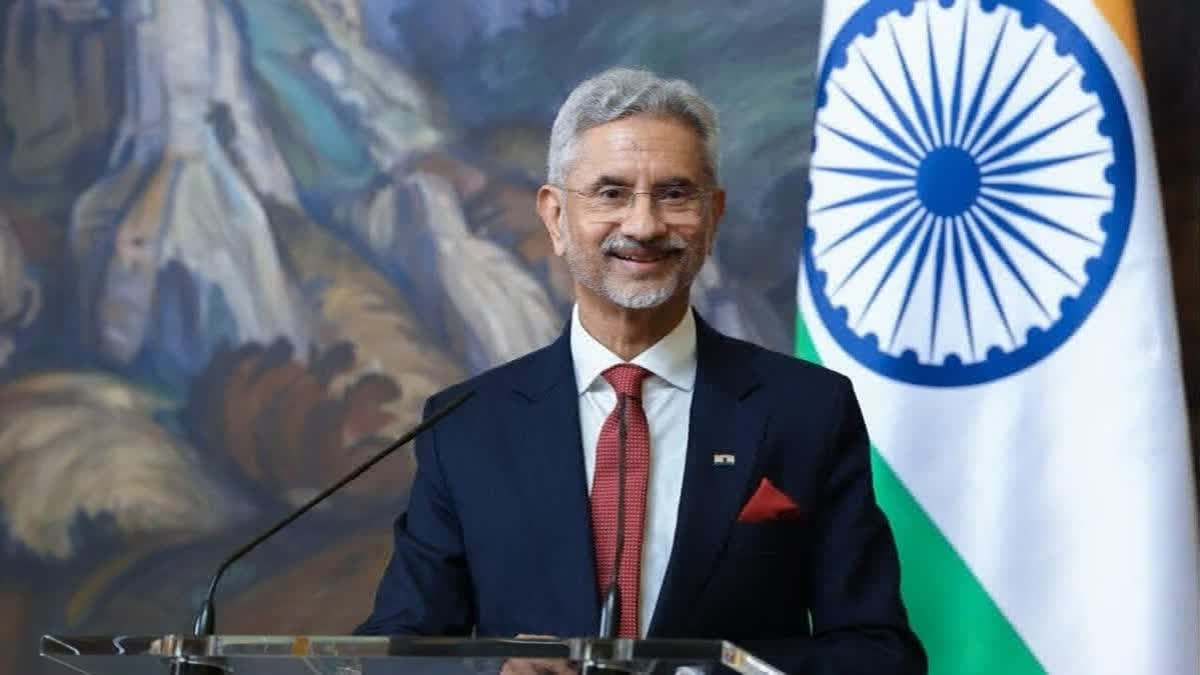Sydney: The world would be moving to a much more integrated global workplace prompting many countries, including the US, to make a distinction in immigration and mobility, External Affairs Minister S Jaishankar said here on Thursday. It will be the Corporations that will decide whether the talent goes to the business or the business goes to the talent, Jaishankar said as he harped on the mobility of talent and skills during a meeting with the CEOs and business leaders in Australia.
“Even as there is a re-globalisation, or reworking of the current architecture, apart from the technological changes, I think, the demographic unevenness of the world is beginning to bite us,” Jaishankar, who is on a five-day official visit to Australia, said. Pointing out that there would be economies where the demand would be high, the talents may not be plentiful and may be different in other places, he said, “We will be moving, perhaps in the next few years, to a much more integrated global workplace that many countries, including even the United States, will make a distinction in immigration and mobility.”
Economically justified mobility will have to be fostered by those where the economic value is less or negative (and) will have to be managed, he said. He also spoke about priorities for India -- how do you create manage and optimise a global workplace? “And now the global workplace doesn't mean that the talent alone has to move. Businesses can move as well.”
Asserting that India has already seen that happening in the last few years, the Minister said, “At the last count, we have about 1,800 global capability centres in India, which, between them, generate about USD 150 billion worth of experts.” India sees this trend as intensifying because the more technology-driven, more digital era is going to require a certain concentration and access to skills and talent, he pointed out. “So, whether the talent goes to the business or the business goes to the talent, that's a decision which Corporates will be making.”
Among the possibilities arising after the Republican Donald Trump won the presidential election in the US on Wednesday, Jaishankar said, there will be in a way, “more geopolitical hedging that what will inevitably happen as a consequence of policies which we can safely predict -- many more of us would be seeking more relationships to keep life steady.” The election result in the US would help accelerate the reordering of supply chains which is already taking place in India, he said.
Jaishankar was also optimistic about how, politics notwithstanding, the world will be greener even if the pace of the greening of the economy may vary. India is certainly taking “a big bet on green hydrogen, on green ammonia and thinking of green shipping corridors, electric mobility is already on us and we are looking at biodiesel,” the minister said, adding, that India is also very strongly pushing sustainable aviation fuel.
Earlier, Jaishankar listed India's achievements, especially over the last decade in various fields. He also advised the gathering of the CEOs to “prepare for this different world, a world of AI, a world of EV, a world of really greener services and greener products,” and invited them to India for a first-hand experience. Speaking about Australia, the minister said, “We think of it increasingly as purposed for accelerating this growth and development that I'm speaking about in foreign policy. Our objective is today to promote greater investments, to seek technology, joint ventures, best practices.”
“Underlined ongoing transformations in India in digital, infrastructure, manufacturing and skilling. Highlighted natural complementarities between India and Australia to support each other’s growth,” Jaishankar posted on X after the event. “Our robust business and investment linkages are key drivers of our Comprehensive Strategic Partnership,” he added. Later, Jaishankar also met members of the diaspora, MPs and friends of India at the New South Wales Parliament in Sydney.
A good start to the day meeting CEOs and Business leaders in Sydney.
— Dr. S. Jaishankar (@DrSJaishankar) November 7, 2024
Underlined ongoing transformations in India in digital, infrastructure, manufacturing and skilling. Highlighted natural complementarities between 🇮🇳 and 🇦🇺 to support each other’s growth.
Our robust business… pic.twitter.com/ydpNzjI8uF
“Thanked the Indian community for their active contribution in energising India-Australia partnership,” Jaishankar said. He also participated in a discussion with foreign affairs and strategy experts at the Lowy Institute, an independent think tank in Sydney.



